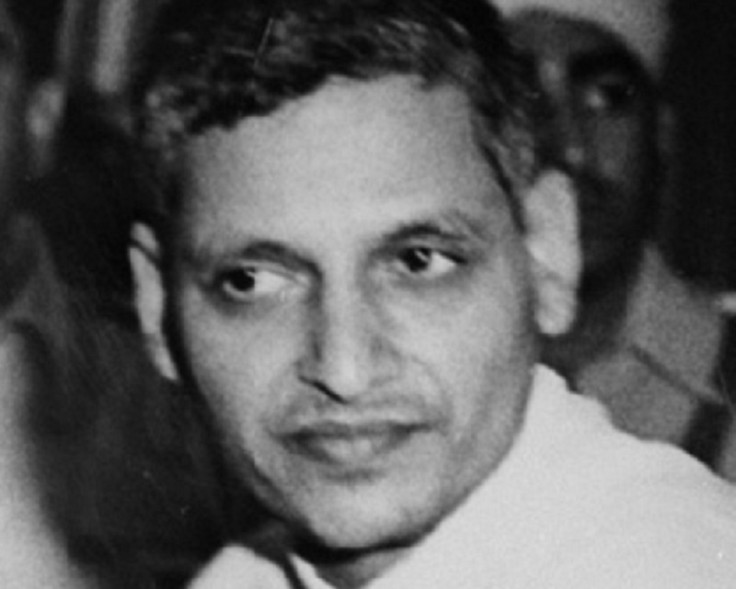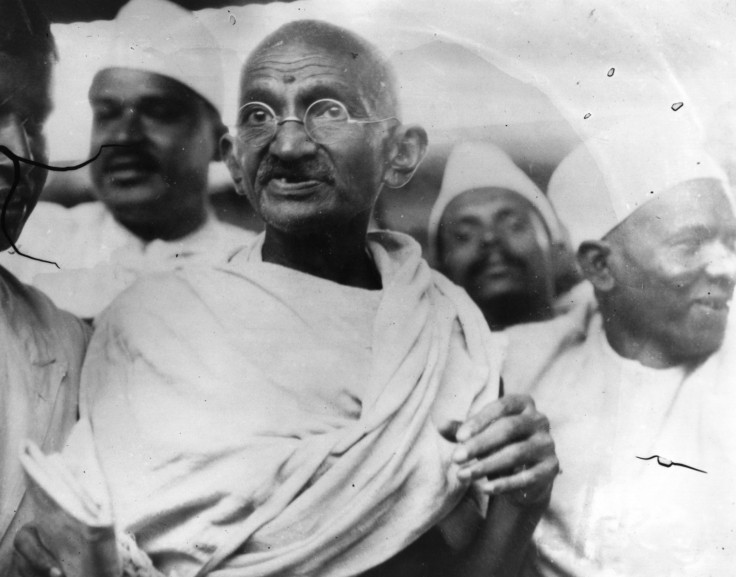Gandhi assassination: Who was Nathuram Godse and why did he murder India's Father of the Nation?

Sixty-seven years ago today (30 January), the pre-eminent leader of the Indian independence movement in British-ruled India, Mohandas Karamchand Gandhi, stood in the gardens of a New Delhi building where a prayer meeting was about to take place.
Nathuram Godse approached Gandhi at 5.17pm and bowed, then pushed aside one of Gandhi's grandnieces and shot him in the chest three times. As Gandhi collapsed, he shouted "police" and surrendered himself.
Gandhi's death was mourned nationwide. More than two million people joined the five-mile-long funeral procession from Birla House, where he was assassinated, to Raj Ghat. Erected as a memorial to Gandhi, Raj Ghat bears the epigraph "Hē Ram" – meaning "Oh God" – widely believed to be his last words.
As the primary leader of India's liberation, Gandhi was the architect of a form of civil disobedience that would influence the world and later inspire the 1960s Civil Rights Movement in the United States. So who was Godse and why did he murder Gandhi?
School and politics
Godse was born in the Pune district, now situated in the Maharashtra state of India. Before he was born, his parents lost three sons and, fearing a curse was targeting their male children, he was brought up as a girl for the first few years of his life – including having his nose pierced. When he brother was born, he was brought up as a boy.
Godse attended the local school in Baramati, before moving to an English-language school. He highly respected Gandhi during his school days, but dropped out of high school and became an activist with Hindi nationalist organisations the Rashtriya Swayamsevak Sangh, a right-wing charitable and education non-profit, and the Hindu Mahasabha, a Hindu nationalist political party. He also started a Marathi-language newspaper, Agrani, which was later renamed Hindu Rashtra.

Muslim interests
Several reasons have been put forward as to why Godse assassinated Gandhi on 30 January 1948, after plotting the shooting with his friend Narayan Apte and six others.
Godse left the RSS in the early 1940s and formed a militant organisation called Hindu Rashtra Dal. He believed Gandhi was giving in to Muslim interests, which he deemed anti-national.
Speaking during his trial, Godse said: "It was not so much the Gandhian Ahimsa teachings that were opposed to by me and my group, but Gandhiji, while advocating his views, always showed or evinced a bias for Muslims, prejudicial and detrimental to the Hindu Community and its interests.
"I have fully described my point of view hereafter in detail and have quoted numerous instances, which unmistakably establish how Gandhiji became responsible for a number of calamities which the Hindu Community had to suffer and undergo."
Non-violence
It is generally understood that Godse felt the suffering caused by the partition could have been avoided had the Indian government lodged strong protests against the treatment meted out to the minorities – Hindus and Sikhs – in Pakistan. According to Godse, they too were influenced by Gandhi's non-violent approach and resorted to "weaker" methods. Godse felt Gandhi's fasts against the atrocities in Pakistan were insufficient.
"I thought to myself and foresaw I shall be totally ruined, and the only thing I could expect from the people would be nothing but hatred... if I were to kill Gandhi," Godse said in court. "But at the same time, I felt that the Indian politics in the absence of Gandhi would surely be proved practical, able to retaliate, and would be powerful with armed forced."

Fasts
As part of his philosophy of non-violence, Gandhi undertook 17 fasts during India's freedom movement – the longest of which was 21 days. Godse believed that it was Gandhi's last fast, announced weeks before he was killed, that forced the cabinet to reverse its earlier decision to give a cash balance to Pakistan on 13 January 1948.
However, in March, the cabinet decided to withhold the money after self-styled liberators from Pakistan invaded Kashmir with support from the Pakistani army. Godse felt this was appeasing Pakistani Muslims at the expense of Hindus in India. Interestingly, Gandhi's fast was for the restoration of Hindu-Muslim peace and continued for three days after the cabinet announced its decision to give the money to Pakistan – which Godse may have not known.
Social mobility decline
The Godses were Chitpavan Brahmins, a community concentrated in Maharashtra that were not esteemed in social ranking until the 1700s. In the 20<sup>th century, however, the group enjoyed social prestige – but has become anxious about its status in the midst of the transformation of India's socio-economic milieu.
The threat to the established social hierarchy left the traditional elite anxious, according to Quartz. This is something Godse experienced personally. A clothes shop he had opened age 16 failed – and he took to tailoring, seen as a lower caste profession.
Following the assassination of Gandhi, Godse was put on trial at the Punjab High Court and sentenced to death on 8 November 1949.
© Copyright IBTimes 2025. All rights reserved.






















